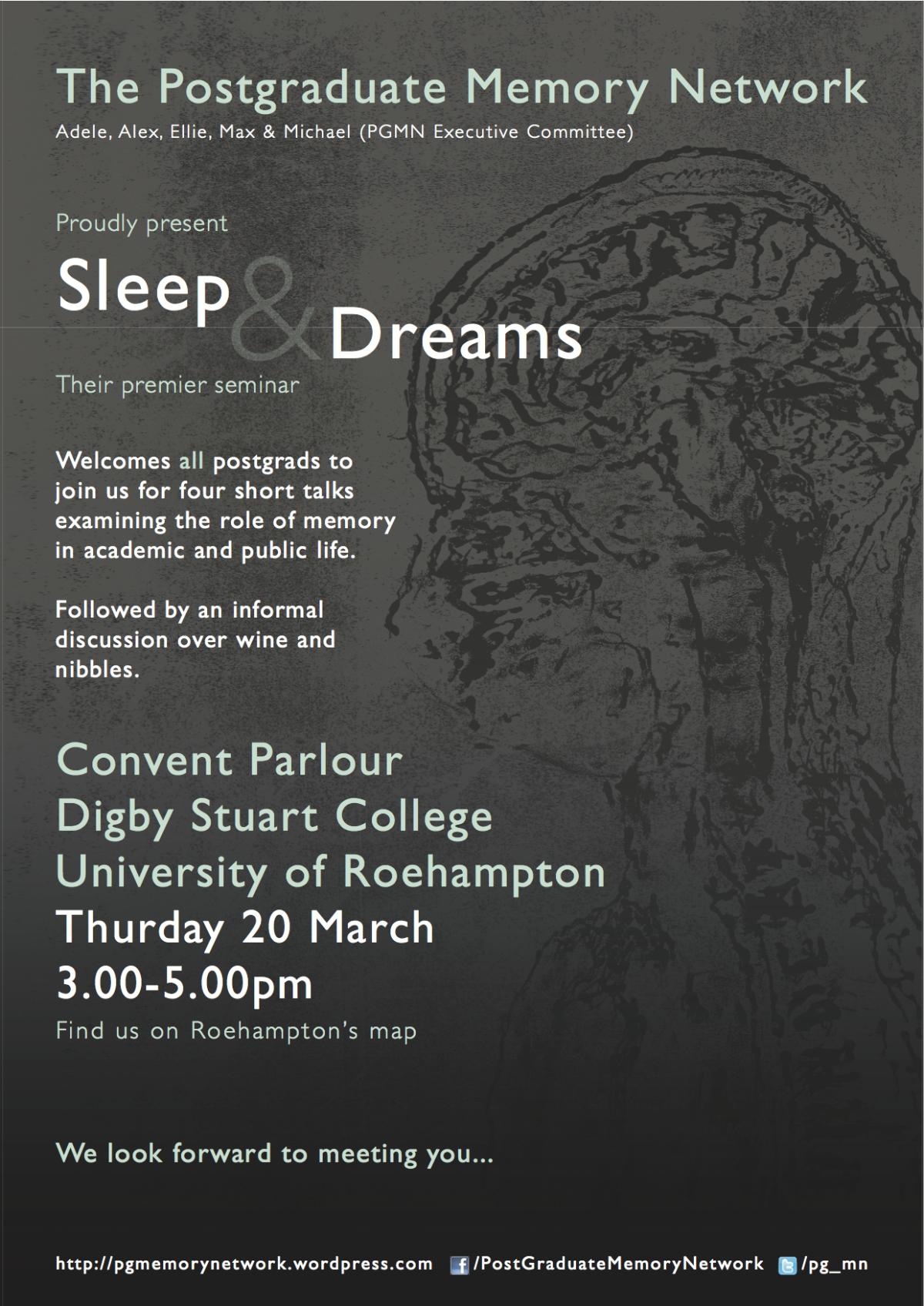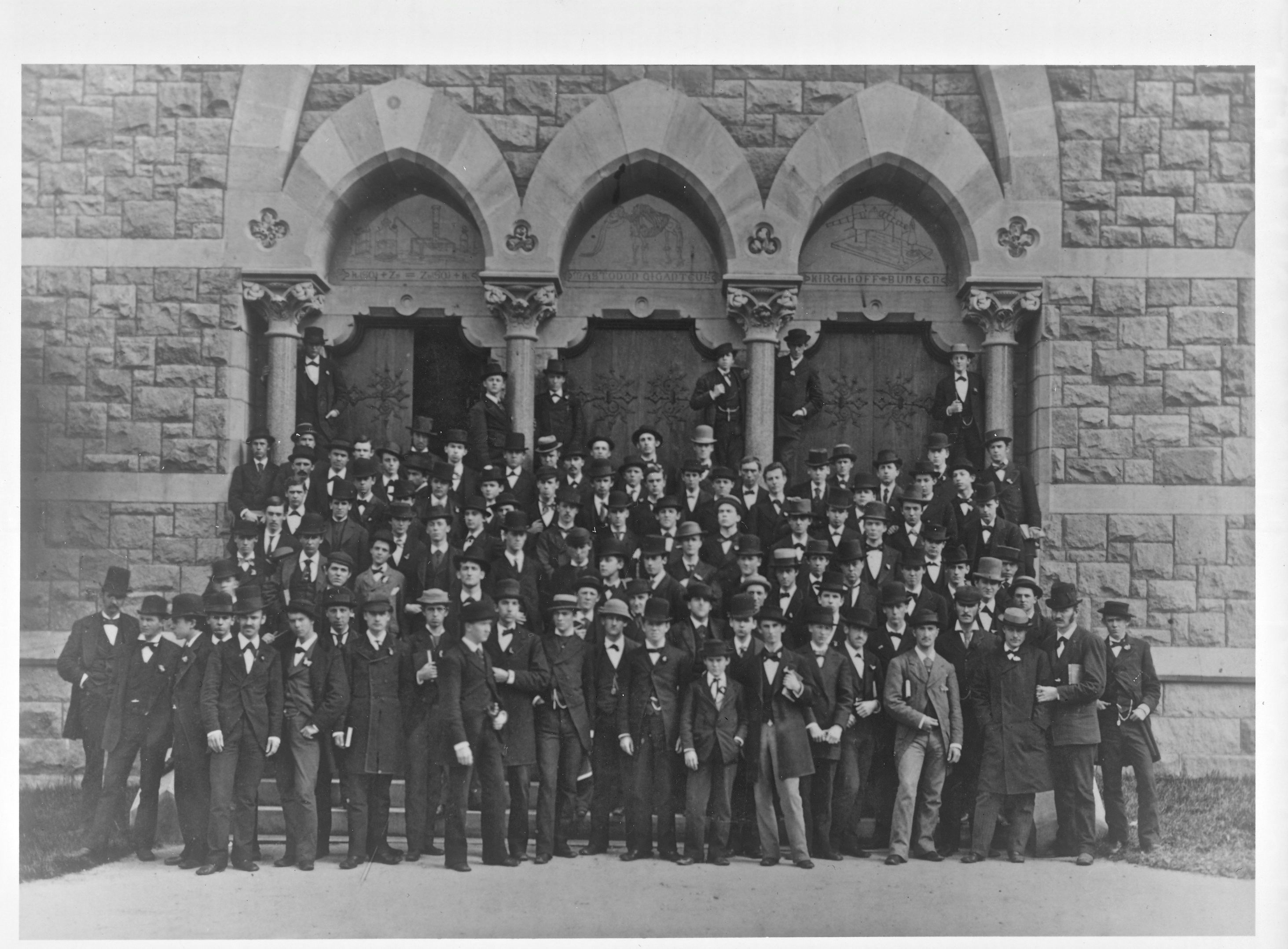On Thursday the 20th March from 3-5pm the Postgraduate Memory Network will be holding its first seminar of 2014 at the University of Roehampton on the subject of ‘Sleep and Dreams’, featuring three talks from its members:
Adele James (Psychology PhD student, Roehampton):
Dreams and memory
What role does dreaming play in memory? Adele will discuss how dreaming might play a vital part in consolidating memory during sleep from a neuropsychological perspective.
Joelle English (English lit. MA student, Royal Holloway):
Sleep in Medieval Romance
When we think of romance it is easy to think of brave knights fighting monsters and rescuing maidens, so why do they keep falling asleep? Those familiar with popular fairy tales such as ‘Sleeping Beauty’ would imagine a maiden in an enchanted sleep awoken by her knight in shining armour. In medieval romance however, it is the other way round. I will explore how sleep progresses narrative action through passivity and the implications this has on chivalric ideals as well as gender roles and their exchange in Chrétien de Troyes’ Romances and The Lays of Marie de France.
Michael Jenkins (MSc Psychology, York):
Using sleep to study memories in neuroscience
This talk will begin with an introduction on how sleep and memory is closely linked, and particularly how sleep can be used to improve memory performance. The mechanics of sleep, as well as the neuroimaging technique known as polysomnography (PSG), will be explained. The talk will then go on to present a recent MSc project conducted by two of the PGMN’s executive committee members, which looked at whether sleep is specially linked with the consolidation of emotional memories.
The event will take place in the Convent Parlour of Digby Stuart College. For more information, please visit the PGMN’s websites:


